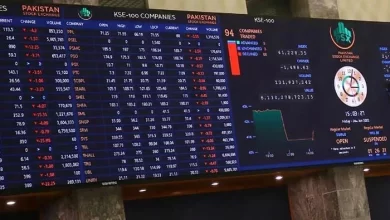
1. Introduction
Sales tax evasion has long been an issue that undermines economic stability in Pakistan. With estimates indicating a Rs3.4 trillion revenue loss, the consequences are dire. This article explores how such tax evasion cripples the country’s economy and what measures could address this massive challenge.
2. The Rs3.4 Trillion Scandal Explained
The scale of Pakistan’s sales tax evasion scandal is staggering. Rs3.4 trillion, equivalent to nearly 10% of the country’s GDP, is lost annually to evasion. This chapter delves into how such large sums are evaded and the mechanisms businesses use to dodge their tax responsibilities.
3. Historical Context of Sales Tax Evasion in Pakistan
Sales tax evasion is not new to Pakistan. Over the years, numerous incidents have come to light, illustrating a pattern of systemic tax avoidance. In this section, we review the key moments in Pakistan’s history that have shaped the current state of tax compliance.
4. Impact on Pakistan’s Economy
Sales tax evasion leads to significant revenue shortfalls, reducing the government’s ability to invest in infrastructure, education, and healthcare. The ripple effects include inflation, reduced public services, and increased borrowing. This section examines these impacts in detail.
5. Sectors Most Involved in Sales Tax Evasion
Certain sectors, such as manufacturing, retail, and real estate, have become notorious for their involvement in tax evasion. Here, we investigate which industries are most complicit in the Rs3.4 trillion loss and why they remain so.
6. Government’s Role in Tackling Tax Evasion
While the government has introduced laws to curb sales tax evasion, loopholes persist. This section reviews the current regulations, enforcement challenges, and the steps being taken—or not taken—by the authorities.
7. International Comparisons
How does Pakistan’s problem with sales tax evasion compare to other countries? This section offers a global perspective, showing how Pakistan’s tax compliance rates stack up against those of other developing and developed nations.
8. Effects on Small Businesses
While large corporations often evade taxes, small businesses bear the brunt of enforcement efforts. This chapter highlights how small businesses, despite complying with tax regulations, suffer due to the uneven application of laws.
9. The Role of Corruption
Sales tax evasion in Pakistan is often facilitated by corruption, especially within government agencies. This section explores how bribery, fraud, and weak oversight allow companies to evade taxes with impunity.
10. The Human Cost of Sales Tax Evasion
The human toll of tax evasion is rarely discussed. With billions lost annually, critical social services like healthcare and education are underfunded. This section emphasizes the social cost of the Rs3.4 trillion scandal.
11. Possible Solutions to Combat Sales Tax Evasion
Tackling sales tax evasion requires a multifaceted approach. From stricter enforcement to better auditing practices, this section presents potential solutions to the problem, with insights drawn from other countries’ success stories.
12. Legal Reforms to Strengthen the Tax System
Current laws need to be reformed to effectively address sales tax evasion. This section outlines the legal changes necessary to plug the gaps in the tax system, making it harder for businesses to evade their obligations.
13. The Role of Technology in Reducing Tax Evasion
Innovative technologies like blockchain, electronic invoicing, and automated tax reporting systems offer promising ways to reduce tax evasion. This chapter looks at how technology can be leveraged to create a more transparent tax environment.
14. Public Awareness and the Role of Civic Duty
Public awareness campaigns and civic duty can play a significant role in reducing tax evasion. This section advocates for greater public engagement in reporting tax evasion and supporting fair tax practices.
15. Conclusion
The Rs3.4 trillion sales tax evasion scandal is a massive challenge for Pakistan’s economy. Without urgent reforms and stricter enforcement, the economic and social costs will only grow. It’s time for the government and citizens alike to take action and restore integrity to the tax system.



